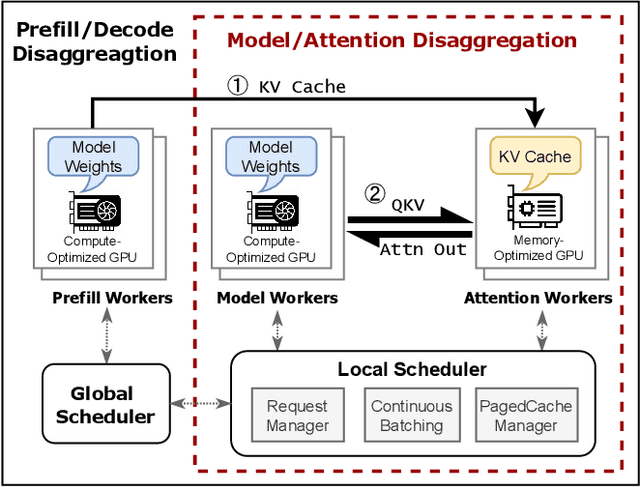Efficient and Economic Large Language Model Inference with Attention Offloading
Paper and Code
May 03, 2024



Transformer-based large language models (LLMs) exhibit impressive performance in generative tasks but introduce significant challenges in real-world serving due to inefficient use of the expensive, computation-optimized accelerators. This mismatch arises from the autoregressive nature of LLMs, where the generation phase comprises operators with varying resource demands. Specifically, the attention operator is memory-intensive, exhibiting a memory access pattern that clashes with the strengths of modern accelerators, especially as context length increases. To enhance the efficiency and cost-effectiveness of LLM serving, we introduce the concept of attention offloading. This approach leverages a collection of cheap, memory-optimized devices for the attention operator while still utilizing high-end accelerators for other parts of the model. This heterogeneous setup ensures that each component is tailored to its specific workload, maximizing overall performance and cost efficiency. Our comprehensive analysis and experiments confirm the viability of splitting the attention computation over multiple devices. Also, the communication bandwidth required between heterogeneous devices proves to be manageable with prevalent networking technologies. To further validate our theory, we develop Lamina, an LLM inference system that incorporates attention offloading. Experimental results indicate that Lamina can provide 1.48x-12.1x higher estimated throughput per dollar than homogeneous solutions.
 Add to Chrome
Add to Chrome Add to Firefox
Add to Firefox Add to Edge
Add to Edge